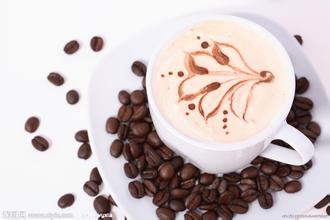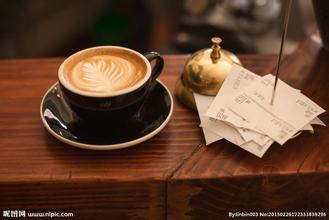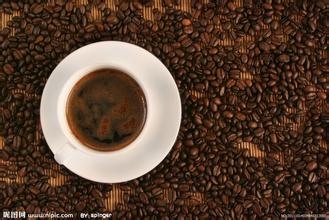The flavor and taste of Puerto Rico boutique coffee beans the characteristics of the manor producing area Larez Yaoke Coffee
The coffee beans selected by Yaocote were kept in shells before being shipped and sold, and the skins were not removed until the order was shipped.
Drop to ensure the best freshness of the coffee. When the goods are submitted, the relevant staff of the United States government, such as FDA
And USEA, who will also be present, work to monitor producers' compliance with federal regulations. And some come from
The staff of the local evaluation board, who take 1 bag out of every 50 bags as samples and use international gauges.
The quality of it is identified and the taste is long. This kind of coffee is very expensive and its flavor is comparable to that of any other coffee variety in the world. In Yaoke
(Yauco) region, the coffee is owned and operated by the local plantation owner. The mountain climate here is mild and planted.
The soil has a long mature period (from October to February of the following year) and the soil is of high quality. Some old varieties are planted here.
Although the yield of Arabica coffee beans is lower than that of other varieties, it is generally of high quality. People here have been using a
Planting methods of ecological protection and intensive cultivation, using only some low-toxic fertilizers and chemicals, and adopting
Mixed crop planting measures to make the soil more fertile. When it's time to pick coffee beans, people are making coffee.
Walking back and forth between trees, picking only fully ripe coffee beans, and then washing them in a drum device.
In the last 48 hours of Yauco Selecto, "Selecto" means "pick". Big Larez Yaoke Coffee
Grand Lares Yauco is produced in the southwest of the island, while Larez coffee is produced in the south-central part of the island.
Yaocote, a gourmet coffee from Puerto Rico, is grown only on three farms in the southwest of the island. It has a strong flavor, and the income of manual workers after drinking is still higher than that of workers in many other coffee-producing countries. As long as Hawaii and
Jamaica is the same. Another problem facing the coffee industry in Puerto Rico is that in the Caribbean,
The cultural quality of each person in Duoli is relatively high, so they have better employment prospects. Yaocote chooses coffee only in the island country.
Planted on three farms in the southwest, it has a strong fragrance and a long aftertaste. This kind of coffee is very expensive.
The aroma is comparable to that of any other kind of coffee in the world. In the Yauco area, the coffee belongs locally.
The planter owns and operates. The mountain climate here is mild, and the plants have a long mature period (from October to second time).
In February 2008, the soil is of high quality clay. Some old varieties of Arabica coffee beans are grown here, although the yield is higher than that of it.
His variety is low, but he is generally of high quality. People here have always adopted an ecological and intensive planting method.
Law, only use some low-toxic fertilizers and chemicals, and take mixed crop planting measures to make the soil
More fertile. When it's time to pick coffee beans, people walk back and forth among the coffee trees, picking only fully mature
And then wash them in a drum device for 48 hours. Today, Puerto Rican gourmet coffee has been exported to the United States, France and Japan. Coffee in this country is generally carefully planted, with pure taste, aroma and heavy granules, among which the best is among the world's famous brands. The best coffee is Puertp Rico Yaocote, Puerto Rico. In 1736, coffee trees were introduced from Martinique to Puerto Rico (Yaocote). Early coffee
Most of them are grown by immigrants from Corsica. By 1896, Puerto Rico exported more coffee in the world.
Ranked sixth, with most coffee shipped to France, Italy, Spain and Cuba. Coffee Manor in the 19th Century
Prosperity, but the rise of sugarcane and drug farming and the impact of hurricanes and wars have stagnated the coffee industry
It is not moving forward, and it is now recovering. Puerto Rico has a low-wage system, with a per capita hourly wage of $4.20 in 1991. Even so

Important Notice :
前街咖啡 FrontStreet Coffee has moved to new addredd:
FrontStreet Coffee Address: 315,Donghua East Road,GuangZhou
Tel:020 38364473
- Prev

Taste of Guatemalan Coffee introduction to Antigua Coffee in Manor area
Antigua Island (Antigua) is a famous producer of coffee. Rich volcanic soil, low humidity, strong sunlight and cool night winds are the characteristics of Antigua. Three spectacular active volcanoes ── Agua, Acatenango and Fuego form a beautiful valley. Fuego active volcano also adds misty dust from time to time. Every 3
- Next

Santo Domingo Coffee Flavor Manor Features Dominican Coffee Bean
Dominican coffee is grown in upland and lowlands and tastes slightly different. Highland plants are sour, but rich in taste; lowland plants are less sour and smoother in taste. In recent years, specialty coffee has become popular. Some Dominican estates produce high-quality coffee beans with rich aroma and rich taste, with a moderately bright acidity. They have been compared with the more famous Puerto Rico beans or teeth.
Related
- Detailed explanation of Jadeite planting Land in Panamanian Jadeite Manor introduction to the grading system of Jadeite competitive bidding, Red bid, Green bid and Rose Summer
- Story of Coffee planting in Brenka region of Costa Rica Stonehenge Manor anaerobic heavy honey treatment of flavor mouth
- What's on the barrel of Blue Mountain Coffee beans?
- Can American coffee also pull flowers? How to use hot American style to pull out a good-looking pattern?
- Can you make a cold extract with coffee beans? What is the right proportion for cold-extracted coffee formula?
- Indonesian PWN Gold Mandrine Coffee Origin Features Flavor How to Chong? Mandolin coffee is American.
- A brief introduction to the flavor characteristics of Brazilian yellow bourbon coffee beans
- What is the effect of different water quality on the flavor of cold-extracted coffee? What kind of water is best for brewing coffee?
- Why do you think of Rose Summer whenever you mention Panamanian coffee?
- Introduction to the characteristics of authentic blue mountain coffee bean producing areas? What is the CIB Coffee Authority in Jamaica?

